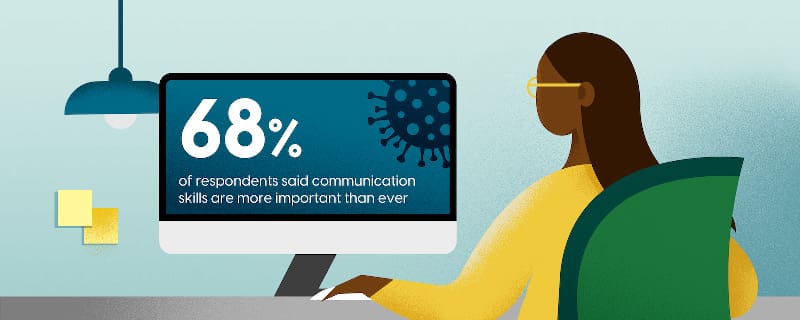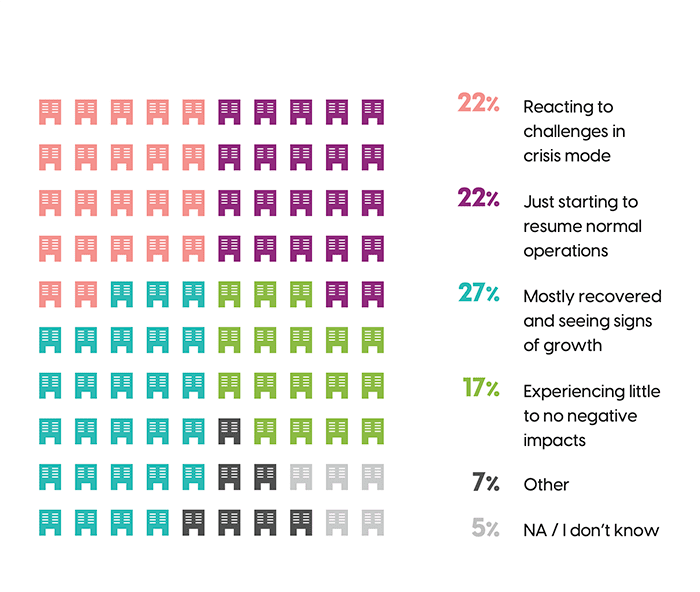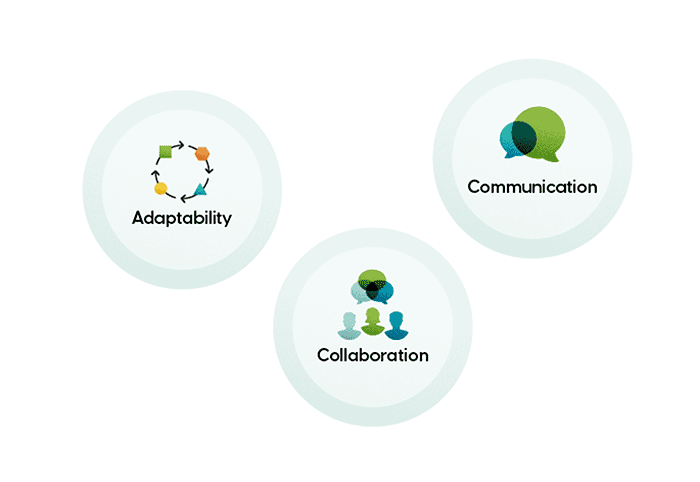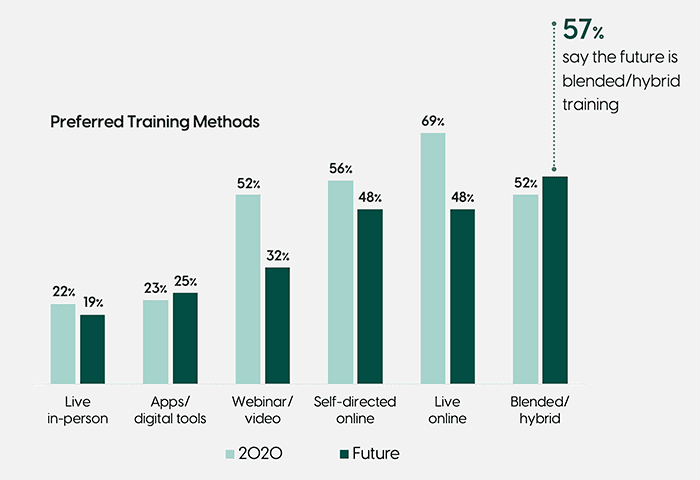Adaptive Listening™
Build trust and traction
Uncover a better way to listen that goes beyond active listening and paying attention. Learn about the way you prefer to listen, and adapt to meet the needs of others.

2020 was one heck of a year. We experienced a global pandemic that upended life and business as we knew it. For those businesses that survived to see 2021, work has been forever changed. As a provider of storytelling and communication training, Duarte conducted research to learn from others in the learning and development (L&D) industry how they were navigating this new terrain and how communication has changed to meet the demands of the time. This research provided findings that we all can take with us into 2021 to ensure that our futures are collectively brighter.
Through this research, we found that many companies struggled to move past crisis mode. Thankfully, some were able to move forward into recovery and others were able to resume normal operations. Overall, during this crisis, many organizations prioritized increasing retention, and driving up revenue and profits.

COVID-19 impact on business
Communication skills also proved to be more important during the pandemic; in fact, not a single respondent to our survey identified communication skills as less important. Respondents explained that communication during the pandemic helped connect people in a variety of ways. For example, technology advancements provided the capability to communicate virtually, which helped facilitate the move online for those able to work remotely and helped many survive the turbulent times. It can be inferred that without online communication, the economic toll of COVID-19 would have been even greater.
Our research also found that working in a virtual environment led to an increase in the importance of communicating in a frequent and timely fashion. Respondents indicated that communication was a powerful coping tool for workers, teams, and organizations during COVID-19. Communication allowed many to connect during times of isolation and helped to spread information —which, for some, reduced uncertainty, increased safety, and enabled organizations to navigate problems and find new opportunities. Communicating with empathy in 2020 was also a must as people were dealing with the many impacts of the pandemic, including illnesses and deaths in close circles, job uncertainty and economic suffering, and entire households working and attending school under the same roof.
In addition, respondents indicated that the move online forced people to adapt quickly to using a medley of communication channels, each of which has a unique set of needs, skills, and tools. We found that those clinging on to the old ways of how things have always been done didn’t reap the same benefits as those that were willing to be adaptable. We also found that communication that wasn’t empathetic or aligned sowed division, led to a lack of retention, and created feelings of being unappreciated.
We also asked survey respondents a series of questions about soft skills generally, and uncovered a few notable insights. When asked to rank the top three soft skills needed at this time, respondents identified them as: adaptability, communication, and collaboration.

Top 3 soft skills needed right now
We found that many soft skills were ranked as important to very important when it comes to the daily performance of organizations. For example, soft skills that are associated with being adept at working virtually, such as virtual communication, using various communication channels effectively, facilitating meetings and discussions, and creating effective presentations and slides, were all rated as important to very important. Additionally, soft skills that are associated with data roles, such as storytelling, communicating data insights, data literacy, creating effective presentations and slides, using various communication channels, and virtual communication, were all rated as important to very important.
This research into understanding the value of soft skills today and in the future suggests that those with soft skills will be highly valued in organizations of all kinds, especially when navigating uncertainty and change. That said, our research also found that there is still plenty room for people to improve their soft skills. When asked how proficient employees are in communication skills, respondents on average said that their employees weren’t very proficient.
In order to meet the training needs of today and tomorrow, the L&D industry is transforming. Preference for live in-person training was low in 2020 while live, virtual communication training was most preferred. Moving forward, a hybrid communication training model is likely to be preferred.

Preferred training methods
As we navigate the changing L&D landscape, it’s valuable to know that when choosing a training vendor, survey respondents said they find quality content, skilled facilitators, and knowledgeable and professional staff important to very important factors. And, when they are considering live online training, respondents said that engaging content, effective facilitators, and easy-to-use technology were very important factors. With the right mix of communication training, organizations will be well-positioned to emerge stronger and sustain momentum in 2021 and beyond.
Read the complete research report, “Transformative Soft Skills and Training to Build the Teams of Tomorrow” here.
Illustrated by Alexis Macias